|
The Magnificent 7. Why the Weakness on Wall Street? The Wild Ride The Magnificent 7 have been spectacular throughout the entire 21st Century. However, the ride of late has been a bit wild. As you can see in the chart below, Tesla lost -66% in 2022 – one of the worst performers of the year. However, it is still the strongest performer of the seven companies, with a 9-fold increase in share price over the 5-year period. In 2022, the NASDAQ Composite Index plunged -33% compared to the S&P500 decline of -19.44%. So far this year, the NASDAQ is up 21.6%, even with the -11.8% retreat we’ve seen since July 28, 2023. The Magnificent 7 is boasting share price gains of 34%-182% year to date, even with the sell-off of the last few days. (The high of the NASDAQ Composite Index was 16,212, which was set on Nov. 19, 2021.) Volatility is why regular rebalancing is so important. (More on that below.) Here’s where things stand at this time. The revenue growth in almost all of these companies is still respectable (and eyepopping in the case of AI-company Nvidia). So, that doesn’t explain the pullback. What is causing investors to be skittish about these Wall Street All-Stars, and will it continue? In this blog, we’ll look at: Earnings Prices Outlook Rebalancing And here’s more on each point. Earnings Most of the Magnificent 7 have reported their earnings, with the exception of Apple (Nov. 2) and Nvidia (Nov. 21). While the earnings of the companies that have reported remain noteworthy, particularly given the war, hardships and competition throughout the world, the net profit margins are moderating. Tesla is trading down -15% since it reported earnings on October 18, 2023. The company saw its revenue increase by just 9% in the 3rd quarter of 2023, after reporting double-digit growth for the past decade. $1.853 billion in net income was a drop of -44% from the prior year’s $3.3 billion. Alphabet and Meta increased revenue by 11% and 23%, respectively, while retaining profit margins of 26% and 23%. Yet both saw a drop in share price after reporting their 3Q 2023 results. Meta’s guidance calls for 4Q 2023 revenue of $36.5-$40 billion, which is an increase of 13.5%-24.3% year over year. However, investors were spooked by CFO Susan Li’s admission that the war between Israel and Hamas was negatively impacting ad sales, which make up 98.5% of Meta’s revenue. Ruth Porat, the President and Chief Investment Officer; CFO, Alphabet and Google, dodged the question of whether the conflict would impact ad spend in the 3Q 2023 earnings call. Is that why the sell-off of Alphabet Inc. (Google) was so severe (-9.5% over the last 5 days)? Is there something else at play? Prices “We’re valuing based upon what it will be worth in 3 years.” Wall Street insider explaining why he was excited to buy Nvidia at a 108 price-earnings ratio. Prices of stocks are elevated and share prices of the Magnificent 7 are astronomical. As you can see in the Magnificent 7 Stock Report Card below, P/Es are light years above the average P/E of 17. Yes, companies with high growth can support a higher P/E. However, like Nvidia, Tesla’s market cap soared to a trillion when the company had earnings of only $5 billion. It’s now worth $655 billion, down -35% (with a still elevated PE of 66). The boom of Artificial Intelligence is real, as you can see in Nvidia’s revenue growth. However, competition, supply chain disruptions, restrictions on semiconductor sales to China (where 19% of Nvidia’s revenue comes from), a recession, war, and other headwinds could put plenty of obstacles in Nvidia’s road to earning its (almost) trillion dollar valuation. Whenever there is a game-changing innovation like AI, there are always fits and starts on the road to success, just as we saw with the Internet in 1999 – when many companies were completely wiped out, while others saw their share price plunge by 78% and take 15 years to recover. Nvidia looks like the one that will survive and thrive any fallout. However, macroeconomic challenges can cause all equities to go underwater. The biggest headwind for Nvidia is the share price, which is trading at 97.41 times earnings. The share price has fallen $100 over the past two months – -19.4% . What will happen over the next few weeks when Apple and Nvidia report earnings? Outlook On Nov. 2, 2023, all eyes will be on Apple to determine whether the Chinese ban on the iPhone (and launch of a competitive Huawei smart phone) will make the company miss their earnings forecast. As I mentioned in my Sept. 9, 2023 blog, even if Apple hits their $81.8 billion revenue target, it will be -9.3% lower than the Sept. quarter of 2022. It’s hard to imagine that investors are going to be thrilled with this earnings report, unless there is an upside surprise that no one sees coming. Nvidia is expecting another gangbuster earnings report. Judging by the amount of times AI was mentioned in the earnings calls and press releases of the other Magnificent 7, nothing is going to prevent the company from meeting or exceeding earnings expectations, when it reports on Nov. 21, 2023. However, as we’ve seen in the other reports, the analysts are looking for any sign of weakness in the forward outlook. As the outlook becomes less certain, it’s difficult to justify such lofty share prices . Whale investors are forward-thinking. Rebalancing The Magnificent 7 have soared to interstellar heights and have sunk back to Earth multiple times over the past five years. That is why capturing gains and rebalancing is such an important tool in our wealth plan. By using our pie chart system, your slices prompt you to capture gains when stocks shoot the moon, and buy low when they crash. Rebalancing 1-3 times a year is a buy low, sell high plan on auto-pilot that takes the emotions out of investing, and prompts us to employ this time-proven investing rule. Bottom line The Magnificent 7 companies are so strong because they are embedded in every part of our lives. I’m writing in a Word document, while looking up data on MSN and Google search, from my MacBook Air and iPhone. All of these companies are remodeling every room in their business with artificial intelligence. Electric vehicles are the fastest growing vertical in the auto industry. However, war, unsustainably high post-pandemic debt loads, inflation, supply constraints and economic uncertainty will impact almost all of these businesses. Tight budgets curtail consumer spending, which causes businesses to cut their ad spend. It is rare for a company to swim upstream, when all of Wall Street is crashing. It’s not a matter of jumping all in or all out. Market timing doesn’t work. However, acting our age and overweighting safe when there are economic storms on the horizon is a sound strategy – and is something we’ve seen the whales do over the last two years, as they trim back on their at-risk positions and move into a safer yield. (Bonds are tricky, but can be safer if we adhere to a few, simple rules.) Join us at our Jan. 13-15, 2024 New Year, New You Financial Freedom Retreat. Learn nest egg strategies, how to get hot and diversified, and what's safe in a Debt World. You'll even discover how to save thousands annually with smarter big-ticket choices. Yes, it's a complete money makeover. Email [email protected] to register. Learn the 15+ things you'll master and read testimonials in the flyer (link below) and on the home page at NataliePace.com. Register by Halloween (10.31.2023) to receive the best price and a complimentary 50-minute private prosperity coaching session (value $400). Many people, including educated men and women, often get into trouble when they neglect to follow simple and fundamental rules of the type provided [by Natalie]. This is why I recommend them with enthusiasm." Professor Gary S. Becker. Dr. Becker won the 1992 Nobel Prize in economics for his theories on human capital  Join us for our Online New Year, New You Financial Freedom Retreat. Jan. 13-15, 2024. Email [email protected] or call 310-430-2397 to learn more. Register by Halloween to receive the best price and a complimentary 50-minute private prosperity coaching session (value $400). Click for testimonials, pricing, hours & details.  Join us for our Restormel Royal Immersive Adventure Retreat. March 8-15, 2024. Email [email protected] to learn more. Register with friends and family to receive the best price. Click for testimonials, pricing, hours & details. There is very limited availability, and you must register early to ensure that you get the exact room you want. This retreat includes an all-access pass to all of our online training for a full year for two!  Natalie Wynne Pace is an Advocate for SustainabilityFinancial Literacy & Women's Empowerment. Natalie is the bestselling author of The Power of 8 Billion: It's Up to Us and is the co-creator of the Earth Gratitude Project. She has been ranked as a No. 1 stock picker, above over 835 A-list pundits, by an independent tracking agency (TipsTraders). Her book The ABCs of Money remained at or near the #1 Investing Basics e-book on Amazon for over 3 years (in its vertical), with over 120,000 downloads and a mean 5-star ranking. The 5th edition of The ABCs of Money and the 2nd edition of Put Your Money Where Your Heart Is were released in 2021. Follow her on Instagram. Natalie Pace's easy as a pie chart nest egg strategies earned gains in the last two recessions and have outperformed the bull markets in between. That is why her Investor Educational Retreats, books and private coaching are enthusiastically recommended by Nobel Prize winning economist Gary S. Becker, TD AMERITRADE chairman Joe Moglia, Kay Koplovitz and many Main Street investors who have transformed their lives using her Thrive Budget and investing strategies. Click to view a video testimonial from Nilo Bolden. Check out Natalie Pace's Apple Podcast. Watch videoconferences and webinars on Youtube. Other Blogs of Interest Cruise Ships Give Freebies to Investors. Should You Take the Bait? Should You Take a Cruise? Bonds. Banks. The Treacherous Landscape of Keeping Our Money Safe. 7 Rules of Investing Air B N Bust? Santa Rally 2023 or Time to Get Defensive? Barbie. Oppenheimer. Strikes. Streaming Wars. Netflix. Monero: A Token of Trust? 13 Lifestyle Choices to Reduce Waste, Pollution & CO2 & Save a Boatload of Dough. China Bans Apple 11-Point Green Checklist for Schools. Artificial Intelligence and Nvidia's Blockbuster Earnings Report Biotech in a Post-Pandemic World Summer Sweepstakes 10 Wealth Secrets of Billionaires and Royals. What Happened to Cannabis? Bank of America has $100 Billion in Bond Losses (on Paper) The USA AAA Credit Rating is on a Negative Watch. Lithium. Essential to EV Life. I'm Just Not Good at Investing. Investors Ask Natalie. Should I Buy an S&P500 Index Fund? Investors Ask Natalie. Bonds Lost More than Stocks in 2022. Tesla's Model Y is the Bestselling Car in the World. 2023 Company of the Year Sell in May and Go Away? Do Cybersecurity Risks Create Investor Opportunities? Writers Strike, While Streaming CEOs Rake In Hundreds of Millions Annually. I Lost $100,000. Investors Ask Natalie. Artificial Intelligence Report. Micron Banned in China. Intel Slashes Dividend. Buffett Loses $23 Billion. Branson's Virgin Orbit Declares Bankruptcy. Insurance Company Risks. Schwab Loses $41 Billion in Cash Deposits. The Debt Ceiling Crisis. What's at Stake? Fiat. Crypto. Gold. BRICS. Real Estate. Alternative Investments. BRICS Currency. Will the Dollar Become Extinct? Empty Office Buildings & Malls. Frozen Housing Market. The Online Global Earth Gratitude Celebration 7 Green Life Hacks The Debt Ceiling. Will the U.S. Stop Paying Bills in June? Fossil Fuels Touch Every Part of Our Lives Are There Any Safe, Green Banks? 8 Fires the Federal Reserve Board Needs to Put Out. 7 Ways to Stash Your Cash Now. Lessons from the Silicon Valley Bank Failure. The 2 Best Solar Stocks Which Countries Offer the Highest Yield for the Lowest Risk? Rebalance By the End of March Solar, EVs, Housing, HSAs -- the Highest-Yield in 2023? Are You Anxious or Depressed over Money? Why We Are Underweighting Banks and the Financial Industry. You Stream all the Channels. Should You Invest, Too? NASDAQ is Still Down -26%. Are Meta & Snap a Buy? 2023 Bond Strategy Emotions are Not Your Friend in Investing Investor IQ Test Investor IQ Test Answers Bonds Lost -26%, Silver Held Strong. 2023 Crystal Ball for Stocks, Bonds, Real Estate, Cannabis, Gold, Silver. Tilray: The Constellation Brands of Cannabis New Year, New Healthier You Tesla's $644 Billion Fall From Mars Silver's Quiet Rally. Save Thousands Annually With Smarter Energy Choices Is Your FDIC-Insured Cash Really Safe? Money Market Funds, FDIC, SIPC: Are Any of Them Safe? My 24-Year-Old is Itching to Buy a Condo. Should I Help Him? The 12-Step Guide to Successful Investing. Gardeners Creating Sanctuary & Solutions in Food Deserts. The Bank Bail-in Plan on Your Dime. Rebalancing Your Nest Egg IQ Test. Answers to the Rebalancing Your Nest Egg IQ Test. Important Disclaimers Please note: Natalie Pace does not act or operate like a broker. She reports on financial news, and is one of the most trusted sources of financial literacy, education and forensic analysis in the world. Natalie Pace educates and informs individual investors to give investors a competitive edge in their personal decision-making. Any publicly traded companies or funds mentioned by Natalie Pace are not intended to be buy or sell recommendations. ALWAYS do your research and consult an experienced, reputable financial professional before buying or selling any security, and consider your long-term goals and strategies. Investors should NOT be all in on any asset class or individual stocks. Your retirement plan should reflect a diversified strategy, which has been designed with the assistance of a financial professional who is familiar with your goals, risk tolerance, tax needs and more. The "trading" portion of your portfolio should be a very small part of your investment strategy, and the amount of money you invest into individual companies should never be greater than your experience, wisdom, knowledge and patience. Information has been obtained from sources believed to be reliable. However, NataliePace.com does not warrant its completeness or accuracy. Opinions constitute our judgment as of the date of this publication and are subject to change without notice. This material is not intended as an offer or solicitation for the purchase or sale of any financial instrument. Securities, financial instruments or strategies mentioned herein may not be suitable for all investors. Cruise Ships Reward You for Investing. Is it Worth It? Cruise ships give shareholders spending money. Should you take the bait? Or is it more like those free vacations, where you go home with a timeshare (money pit) that you didn’t know you wanted, and can’t get rid of? Are cruise ships an adventure, a treasure trove, a great investment, CO2 horrors or a huge money pit? Revenue Growth Cruise ships are definitely back in business. According to the Royal Caribbean blog, when cruise ships started up after the pandemic, occupancy rates were sometimes as low as 30%. Today, the Big 3 (Royal Caribbean Group, Norwegian Cruise Line Holdings, and Carnival Corporation) are all at 100% capacity. If we line up the revenue, the business looks downright exciting, with year-over-year revenue growth of 60-86%. 2023 annual revenue should be close to the pre-pandemic highs in 2019. Cruise ships are turning a profit this year for the first time since 2019 – before the pandemic. The companies are buying new ships (to retire old ones), are setting out asea with all of their cabins full, and are reducing debt. The goal for many of the companies is to return to investment grade in their credit rating. However, before we get excited and slide into a pool of the mandatory 100+ shares for an extra $100-$250 of spending money on our next cruise, it’s important to understand some of the significant challenges that cruise ships face. In this blog, we’ll take a closer look at how they survived the pandemic and what rules, regulations and debt are part of the industry’s post-pandemic world. Here are some of the things we’ll cover. Operating in the Red Junk Bonds & High Fuel Costs Natural and Unnatural Disasters Carbon Footprint Stock Volatility And here is more information on each point. Operating in the Red Norwegian and Royal Caribbean both lost over $2 billion in 2022, while Carnival lost over $6 billion. The 2023 revenue growth and full-to-capacity cabins will help the 2023 margins to recover. However, the entire industry is heavily indebted – spending more on interest than on fuel, which is typically the largest line-item. Junk Bonds & High Fuel Costs The Top 3 cruise ship companies all carry junk bond ratings. Interest rates on their debt can run as high as 11.5%. Gasoline costs for Royal Caribbean are expected to be $1.14 billion this year, with interest at $1.27-$1.28 billion. The top three companies have over $60 billion in debt, with Carnival carrying the largest load at $29.5 billion in long-term debt. Oil prices are very high, at $85.35 a barrel. With so much war and economic uncertainty in the world, and with OPEC cutting production, the U.S. Energy Information Administration is forecasting $95/barrel oil prices in 2024. Higher fuel prices could raise fuel costs by 11% in 2024, which amounts to a hundred million dollars or more for each company – if the EIA projections are spot on. This will make it challenging for cruise ships to return to investment grade – particularly if anything causes occupancy rates to fall. The low credit quality, massive leverage and rising fuel costs are likely the culprits that are causing the share prices of Carnival and Norwegian to trade close to their 5-year low. Royal Caribbean has a slightly higher share price on the 5-year range, and also a slightly higher credit rating, at BB- (still junk status). Natural and Unnatural Disasters Cruise ships are a very safe form of travel. However, having every cabin full and people packed in can also be a breeding ground for viruses. The pandemic was one of the worst disasters to hit the cruise ship industry since the sinking of the Titanic, when passengers were marooned and confined to their cabins before the industry was ultimately shut down. However, cruise ships have also made headlines for food poisoning (salmonella and e coli) and violent storms. (Click to see a report of a torrential downpour that flooded hallways and made many passengers very nauseated from May 29, 2023.) There has also been a post-pandemic spike in the Cruise Ship Virus – Norovirus – that causes diarrhea outbreaks, according to the CDC. While everyone is excited at the first profits cruise ships have shown since 2019, could the cause of profits (people packed into every square inch) also come with health risks? We’ve seen an increase in very severe storms in the Caribbean and elsewhere. Will this negatively impact voyages during Hurricane Season, cutting into revenue forecasts? Carbon Footprint Not only is gasoline expensive on a balance sheet, it’s very, very hard on the planet. (Greta Thunberg took a sailing ship when she came to speak at the UN about climate crisis.) Cruise ships use almost half a million gallons of gasoline for a 7-day cruise for 3000 people. While a 747 averages about 91 mpg/passenger, a cruise ship is more like 14 mpg/passenger. Will potential customers be put off by the CO2 footprint? On a cruise ship, a lot of the time is spent on the ship doing things that you might do in Vegas – eating, gambling or playing in a swimming pool. In a lot of ways, it’s just Vegas on water. For many cruises, the port of call stops last only a few hours – meaning you’re limited to tourist destinations near the harbor, rather than immersing yourself in the local culture. Sure, you get to gaze out at sea, if you want to brave the high winds to do that – something most people avoid. Is there an adventure we might take with friends, family and our sacred beloved that is affordable and planet-friendly – one that will become a treasured memory? Are we just jumping onboard the cruise ship because we think it is low-cost? Have we added in all of the mandatory taxes, tips and port fees, and “extras,” like costs for specialty restaurants, alcoholic drinks, excursions, exercise classes and even WIFI? Stock Volatility Cruise ships aren’t the only companies to offer incentives to their shareholders. Berkshire Hathaway has a bazaar at its meetings, where many of the companies owned by BH offer discounts on their products. However, an investment in Berkshire is trading close to its 5-year high, while many of the cruise ship stocks are down -40% (Royal Caribbean) to -75-80% (Norwegian and Carnival). Are we being penny wise and pound foolish in purchasing cruise ship shares for a cash credit on our vacation? Bottom Line While 2023 is a recovery year for cruise ships and the first year of profits since 2019, it’s not all smooth sailing for the companies or their shareholders. The headwinds for the industry include hurricanes, pandemics, foodborne and airborne diseases, massive debt, high fuel costs and an astonishingly high CO2 footprint. Join us at our Jan. 13-15, 2024 New Year, New You Financial Freedom Retreat. Learn nest egg strategies, how to get hot and diversified, and what's safe in a Debt World. You'll even discover how to save thousands annually with smarter big-ticket choices. Yes, it's a complete money makeover. Email [email protected] to register. Learn the 15+ things you'll master and read testimonials in the flyer (link below) and on the home page at NataliePace.com. Register by Halloween (10.31.2023) to receive the best price and a complimentary 50-minute private prosperity coaching session (value $400). Many people, including educated men and women, often get into trouble when they neglect to follow simple and fundamental rules of the type provided [by Natalie]. This is why I recommend them with enthusiasm." Professor Gary S. Becker. Dr. Becker won the 1992 Nobel Prize in economics for his theories on human capital  Join us for our Online New Year, New You Financial Freedom Retreat. Jan. 13-15, 2024. Email [email protected] or call 310-430-2397 to learn more. Register by Halloween to receive the best price and a complimentary 50-minute private prosperity coaching session (value $400). Click for testimonials, pricing, hours & details.  Join us for our Restormel Royal Immersive Adventure Retreat. March 8-15, 2024. Email [email protected] to learn more. Register with friends and family to receive the best price. Click for testimonials, pricing, hours & details. There is very limited availability, and you must register early to ensure that you get the exact room you want. This retreat includes an all-access pass to all of our online training for a full year for two!  Natalie Wynne Pace is an Advocate for SustainabilityFinancial Literacy & Women's Empowerment. Natalie is the bestselling author of The Power of 8 Billion: It's Up to Us and is the co-creator of the Earth Gratitude Project. She has been ranked as a No. 1 stock picker, above over 835 A-list pundits, by an independent tracking agency (TipsTraders). Her book The ABCs of Money remained at or near the #1 Investing Basics e-book on Amazon for over 3 years (in its vertical), with over 120,000 downloads and a mean 5-star ranking. The 5th edition of The ABCs of Money and the 2nd edition of Put Your Money Where Your Heart Is were released in 2021. Follow her on Instagram. Natalie Pace's easy as a pie chart nest egg strategies earned gains in the last two recessions and have outperformed the bull markets in between. That is why her Investor Educational Retreats, books and private coaching are enthusiastically recommended by Nobel Prize winning economist Gary S. Becker, TD AMERITRADE chairman Joe Moglia, Kay Koplovitz and many Main Street investors who have transformed their lives using her Thrive Budget and investing strategies. Click to view a video testimonial from Nilo Bolden. Check out Natalie Pace's Apple Podcast. Watch videoconferences and webinars on Youtube. Other Blogs of Interest Bonds. Banks. The Treacherous Landscape of Keeping Our Money Safe. 7 Rules of Investing Air B N Bust? Santa Rally 2023 or Time to Get Defensive? Barbie. Oppenheimer. Strikes. Streaming Wars. Netflix. Monero: A Token of Trust? 13 Lifestyle Choices to Reduce Waste, Pollution & CO2 & Save a Boatload of Dough. China Bans Apple 11-Point Green Checklist for Schools. Artificial Intelligence and Nvidia's Blockbuster Earnings Report Biotech in a Post-Pandemic World Summer Sweepstakes 10 Wealth Secrets of Billionaires and Royals. What Happened to Cannabis? Bank of America has $100 Billion in Bond Losses (on Paper) The USA AAA Credit Rating is on a Negative Watch. Lithium. Essential to EV Life. I'm Just Not Good at Investing. Investors Ask Natalie. Should I Buy an S&P500 Index Fund? Investors Ask Natalie. Bonds Lost More than Stocks in 2022. Tesla's Model Y is the Bestselling Car in the World. 2023 Company of the Year Sell in May and Go Away? Do Cybersecurity Risks Create Investor Opportunities? Writers Strike, While Streaming CEOs Rake In Hundreds of Millions Annually. I Lost $100,000. Investors Ask Natalie. Artificial Intelligence Report. Micron Banned in China. Intel Slashes Dividend. Buffett Loses $23 Billion. Branson's Virgin Orbit Declares Bankruptcy. Insurance Company Risks. Schwab Loses $41 Billion in Cash Deposits. The Debt Ceiling Crisis. What's at Stake? Fiat. Crypto. Gold. BRICS. Real Estate. Alternative Investments. BRICS Currency. Will the Dollar Become Extinct? Empty Office Buildings & Malls. Frozen Housing Market. The Online Global Earth Gratitude Celebration 7 Green Life Hacks The Debt Ceiling. Will the U.S. Stop Paying Bills in June? Fossil Fuels Touch Every Part of Our Lives Are There Any Safe, Green Banks? 8 Fires the Federal Reserve Board Needs to Put Out. 7 Ways to Stash Your Cash Now. Lessons from the Silicon Valley Bank Failure. The 2 Best Solar Stocks Which Countries Offer the Highest Yield for the Lowest Risk? Rebalance By the End of March Solar, EVs, Housing, HSAs -- the Highest-Yield in 2023? Are You Anxious or Depressed over Money? Why We Are Underweighting Banks and the Financial Industry. You Stream all the Channels. Should You Invest, Too? NASDAQ is Still Down -26%. Are Meta & Snap a Buy? 2023 Bond Strategy Emotions are Not Your Friend in Investing Investor IQ Test Investor IQ Test Answers Bonds Lost -26%, Silver Held Strong. 2023 Crystal Ball for Stocks, Bonds, Real Estate, Cannabis, Gold, Silver. Tilray: The Constellation Brands of Cannabis New Year, New Healthier You Tesla's $644 Billion Fall From Mars Silver's Quiet Rally. Save Thousands Annually With Smarter Energy Choices Is Your FDIC-Insured Cash Really Safe? Money Market Funds, FDIC, SIPC: Are Any of Them Safe? My 24-Year-Old is Itching to Buy a Condo. Should I Help Him? The 12-Step Guide to Successful Investing. Gardeners Creating Sanctuary & Solutions in Food Deserts. The Bank Bail-in Plan on Your Dime. Rebalancing Your Nest Egg IQ Test. Answers to the Rebalancing Your Nest Egg IQ Test. Important Disclaimers Please note: Natalie Pace does not act or operate like a broker. She reports on financial news, and is one of the most trusted sources of financial literacy, education and forensic analysis in the world. Natalie Pace educates and informs individual investors to give investors a competitive edge in their personal decision-making. Any publicly traded companies or funds mentioned by Natalie Pace are not intended to be buy or sell recommendations. ALWAYS do your research and consult an experienced, reputable financial professional before buying or selling any security, and consider your long-term goals and strategies. Investors should NOT be all in on any asset class or individual stocks. Your retirement plan should reflect a diversified strategy, which has been designed with the assistance of a financial professional who is familiar with your goals, risk tolerance, tax needs and more. The "trading" portion of your portfolio should be a very small part of your investment strategy, and the amount of money you invest into individual companies should never be greater than your experience, wisdom, knowledge and patience. Information has been obtained from sources believed to be reliable. However, NataliePace.com does not warrant its completeness or accuracy. Opinions constitute our judgment as of the date of this publication and are subject to change without notice. This material is not intended as an offer or solicitation for the purchase or sale of any financial instrument. Securities, financial instruments or strategies mentioned herein may not be suitable for all investors. Bonds. Banks. The Treacherous Landscape of Keeping Our Money Safe. I’ve been reading Samuel Pepys diary. In it he describes the Great Fire of London, when he stashed his gold coins in a carriage, and then had his wife and father bury it in the yard of their country home. Over a year later in the dead of night, he and a trusted friend dug it up in the shadows, out of sight (they hoped) from their neighbors. After the first lode was recovered, they tallied everything up and discovered they were still about 100 coins shy of the total. So they spent the rest of the night sifting through dirt to try and find the missing pieces. In the end, Pepys was relieved that they had only lost about 20 to 30 gold coins. Pepys remarked in his diary, “How painful it is sometimes to keep money, as well as to get it.” This is a sentiment many bond investors and even bank depositors have felt this year, after learning that bonds lost more than stocks in 2022, and watching four major U.S. banks fail. First Republic Bank was A- rated when it had to be rescued. Heartland Tri-State Bank of Kansas didn’t make as many headlines as Silicon Valley Bank, Signature Bank and First Republic did, when it failed in July 2023. We’ve been warning against bonds since 2011. Savers and fixed income investors weren’t being paid to take on the risk, when rock-bottom interest rates encouraged speculation and discouraged pensioners and bondholders with almost no Return On Investment. Asset prices (stocks and real estate) and leverage (debt) soared to new heights, while long-term bonds lost value, and became illiquid and negative-yielding. There have been many failures attributed to bad bond bets. MF Global was one of the more high-profile bankruptcies in 2011. Silicon Valley Bank is another tragic example, as is the $100 billion paper bond losses on the books of the Bank of America. However, how many of us are aware that we are likely holding some of this dodgy paper in our own retirement accounts – even if it is being managed by a fiduciary financial advisor? A Better Way to Get Safe At the bottom of the Great Recession, it was fairly easy to invest in real estate, and do quite well. Anyone with a great deal of money in their liquid assets on the safe side could consider having a safe income-producing hard asset (like a 2nd home that they rented out) that they had purchased for a good price. The ongoing income was a safer yield than bonds were. Real estate is unaffordable in most areas these days. So, that strategy is on pause for now. However, there are other ways to produce income by thinking creatively about all of the bills we pay. (We cover this in depth at our Financial Freedom Retreat.) Of course, we’re always going to need liquidity and cash, too, which means figuring out a way to protect our money from losses, while taking advantage of the 5.5% interest rates that are available this year. This is tricky, but doable. Below are the areas we’ll cover in this blog. Bonds. Tricky, but Doable. Keep the Terms Short and the Creditworthiness High Duration Risk Credit Risk Liquidity FDIC. CDIC. Diversification SIPC. Money Market Funds. Bond Funds and Annuities. Employer Retirement Plans One More Rate Hike? And here is more information on each point. Bonds. Tricky, but Doable. I’m seeing a lot of managed plans that are supposed to be conservative, which are getting loaded up with risky junk bonds and loan products. Getting safe is not as simple as asking your fiduciary financial advisor to protect your wealth. It’s important to know what you own and why, and to read the fine print on your statements. Even highly educated, successful business people can have trouble reading their statements, especially when the information that they’re being told is quite different from what is lying there in the fine print on the statement itself. (Are you verifying what you own with the fine print, or just having faith in what you’re being told?) As just one example (there are many), one of my clients had been told that he was earning 5-7% yield on his portfolio, and that his safe investments protected him from all of the losses in stocks. The statement itself revealed that this was not the truth at all. Due to the losses in the value of the bonds, the return was 1.7% year to date (not 5-7%), compared to 13.9% ROI in stocks. 2022 was a down year for equities. However, stocks had a gangbuster 2021. Even with 2022’s poor performance, stocks earned 7.3% annualized over the 3-year period and 10-12.5% over the 10-year period. Keep the Terms Short and the Creditworthiness High In 2024, the best policy for bonds is going to be to continue to keep the terms short, and the credit worthiness high. The reason for that is duration risk and credit risk. According to the Financial Stability Report released by the Federal Reserve Board on Oct. 20, 2023, “Gross leverage—the ratio of debt to assets—of all publicly traded nonfinancial firms remained high by historical standards.” Net leverage is also elevated. When companies that are already burdened with high debt hit troubled times, one of the options that has to be thrown on the table is debt restructuring through bankruptcy proceedings. Johnson & Johnson, a AAA-rated Dow Jones Industrial Average component, is seeking bankruptcy protection to help settle its talc lawsuit liabilities. (Companies can restructure debt obligations while remaining in business. We’ve seen this in the airlines, retail and automakers industries.) Duration Risk “I am more concerned with the return of my money than the return on my money,” Will Rogers. When are you supposed to get your money back? Is it after you will have been dead for a couple of decades? When someone makes a promise to pay you back, it’s a good idea to know exactly when that’s going to occur, and what events might happen in between now and then that might prevent them from keeping their promise of paying you back. Some businesses are still borrowing for terms longer than 30 years. Even an AA+ rated company, like Apple, can run into challenges over that long of a period of time, just like AAA- Johnson & Johnson is currently facing. If the company gets a credit downgrade or needs to raise money again at a higher interest rate, the value of your existing bond plunges. There is an elevated risk in long-term bonds at this time, partly due to rampant leverage in today’s Debt World. However, there is also a lot of war, political instability, supply chain bottlenecks, inflation, strikes and other challenges to the peace and prosperity of Main Street and Wall Street. Typically, you’ll get a higher interest rate for taking on the additional risk of duration. However, we’re currently getting paid more for short-term bonds than long-term. That will change, which is why annual rebalancing of our wealth plan is important. Credit Risk With over half of the S&P 500 at or near junk-bond status, including most American banks, there are a lot of reasons to be conservative about who you loan money to (in your bond) and how long they have before they have to give it back. Commercial real estate is one industry that is vulnerable right now. However, casinos, cruise ships, hotels, airlines and auto manufacturers are also highly leveraged with low (junk bond) credit ratings. At minimum, it’s important to know the credit rating, leverage, revenue growth and future prospects of the entity you’re loaning the money to (not just the credit rating, as we learned with First Republic Bank and Johnson and Johnson). Liquidity Having access to your money is key, particularly in uncertain times. However, if you buy a risky bond, you might have difficulty finding someone to take it off your hands. If you are able to find a buyer, they’re going to want to buy it on the cheap. That is another reason why we don’t want to reach for yield in today’s overleveraged, volatile world. We risk having our safe assets become illiquid. Now would be a good time to separate the short-term, high quality bonds in our portfolio from the toxic, overleveraged, long-term. Yes, there is a chance that interest rates will start being cut in the future (as soon as late 2024?). While in a normal world, that would help the value of our existing bonds to increase, the matter is complicated when the bonds are low quality and long-term (unless the maturity date is very near). Unless there is a massive growth streak, these firms may have to unload some of their obligations in order to keep operating. Debt restructuring means everyone with a claim gets paid less than par. (Shareholders typically get shafted, which is why stocks are riskier than bonds.) FDIC. CDIC. When Silicon Valley Bank failed, there was one uninsured depositor with over $5 billion, and many other uninsured depositors, as well. I’m sure that played into why the FDIC, Treasury and Federal Reserve came together to embrace a rule that allowed them to make a one-time exception and cover uninsured depositors. These government institutions have taken steps since then to force banks to improve their balance sheets because they do not want to have any more bailouts. How much money do you have sitting at your bank? Is it above the FDIC levels? Why not consider a few FDIC-insured CDs in other creditworthy banks? Federally insured short-term CDs are paying a decent interest rate these days. Diversification Consider diversifying across banks, so that our wealth is federally insured as much as possible. We might also consider having treasury bills (in our own country). Here again, keep the terms short and the creditworthiness high. Long-term government bonds lost -26% of their value last year. They pay less than the short-term issues. Many brokerages make it easy to purchase short-term treasuries within our self-directed retirement accounts. Consider having rolling short-term maturity dates. As the landscape for bonds changes, there will come a time to start adding mid-term duration for the higher credit quality countries and companies with good growth prospects on the horizon. For now, there is a lot of risk in corporate bonds. However, there are also a few opportunities. Again, one must step gingerly to avoid illiquidity, negative yield, and principal loss. However, diversifying, while keeping the terms short (1-3 years) and the creditworthiness high, will go a long way to protecting us from today’s volatile, uncertain world. SIPC. Money Market Funds. Money market funds can lose value and are not FDIC insured. When they lose favor, the share price can plunge as investors run for the exits. (Money market funds had to be rescued in the Great Recession.) The SIPC is not as well-funded or as safe as federally insured banks. There are loopholes in the bank sweep programs that many brokerages offer as a way to get our cash FDIC-insured. I outline a lot of these challenges in my blog from June 2021. (Click to access.) Money market funds no longer have redemption gates. However, they are required to impose liquidity fees if too many people leave at the same time. Bond Funds and Annuities. Bond funds are also losing value. Many have expenses that knock the yield down by one percent or more. Bond funds, pension funds and insurance companies (annuity providers) have investments in illiquid long-term bonds; they loan to commercial real estate and other projects that will need to borrow in 2024 at a much higher rate than they did between 2009 and 2021. According to the Financial Stability Report, “Bond and loan funds that hold assets that can become illiquid during periods of stress remained susceptible to large redemptions. Life insurers continued to rely on a higher-than-average share of runnable liabilities.” Annuities are not federally insured; they are backed by the company that issues the promise. If they are tied to an index, they might also lose value in a recession. Employer Retirement Plans It can be difficult to get safe from the bond challenges in our employer retirement account. If we read the fine print on what is offered in the fixed income or safe category, and are confident that we have selected the best choice, then that’s a good start. However, there are a few other things to consider. One might be to deposit only up to the employer’s match into your employer retirement account, and put the rest into self-directed retirement accounts, including a Health Savings Account (if you’re an American). You’ll have more freedom and choices in your self-directed accounts than the couple of dozen mutual fund options available in your 401K or RSP. Having a more holistic approach to our wealth plan, rather than just depositing into our 401(k) or RSP and checking off the boxes as best we can, will make a huge difference in our quality of life today, and our security tomorrow. We cover all of this at our Financial Freedom Retreat, which is a complete money makeover. One More Rate Hike? The Summary of Economic Projections from the September 20, 2023 FOMC meeting indicated that there could be another rate hike in the November or December 2023 meeting, which is negative for bond values. The board members are also projecting rate cuts in 2024, which is positive. Of course, all of this is fluid and reliant on incoming data. According to Federal Reserve Board Chairman Jerome Powell in a speech to the Economic Club of New York, “Additional evidence of persistently above-trend growth, or that tightness in the labor market is no longer easing, could put further progress on inflation at risk and could warrant further tightening of monetary policy.” That’s Fed-speak for “interest rates could rise.” This uncertainty may appear to make it more difficult to separate the toxic bonds from those that will return to full value and get paid back in full, and will be something that most financial advisors will cite as a reason to do nothing. However, a general rule is that higher credit quality and shorter terms will reduce your risk, while risky bonds could continue to lose value due to the potential of a credit downgrade or debt restructuring (bankruptcy). A harsh recession would be the reason that interest rates get cut, which will be hard for the low credit quality companies to endure without an event that would be negative for bondholders. If you’d like an unbiased 2nd opinion on your personal plan, we offer that through our private coaching. Email [email protected] for pricing and information. Bottom Line Today my thoughts and prayers are with anyone displaced from their home, embroiled in the horrors of war, or trying to make ends meet in a world of inflation when life doesn’t add up. These hardships and tragedies are heartbreaking. And they also add risk to all of us. There’s a reason why peace and prosperity are interlinked so often in grammar. War, natural disasters, pandemics, bank failures, supply chain bottlenecks, skyrocketing debt, inflation, nationalism and elevated asset prices can be perilous to our fiscal health. Navigating to safety in such an environment requires careful planning and execution. While protecting our wealth is not going to end war and create peace on the planet, it can put us in a better position of operating from strength instead of fear, anger and distress. A healthier, wealthier you can make positive contributions to humanity and our shared home planet.  Join us for our Online New Year, New You Financial Freedom Retreat. Jan. 13-15, 2024. Email [email protected] or call 310-430-2397 to learn more. Register by Halloween to receive the best price and a complimentary 50-minute private prosperity coaching session (value $400). Click for testimonials, pricing, hours & details.  Join us for our Restormel Royal Immersive Adventure Retreat. March 8-15, 2024. Email [email protected] to learn more. Register with friends and family to receive the best price. Click for testimonials, pricing, hours & details. There is very limited availability, and you must register early to ensure that you get the exact room you want. This retreat includes an all-access pass to all of our online training for a full year for two! 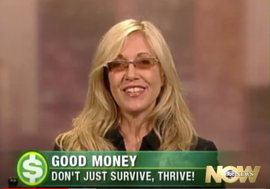 Natalie Wynne Pace is an Advocate for Sustainability Financial Literacy & Women's Empowerment. Natalie is the bestselling author of The Power of 8 Billion: It's Up to Us and is the co-creator of the Earth Gratitude Project. She has been ranked as a No. 1 stock picker, above over 835 A-list pundits, by an independent tracking agency (TipsTraders). Her book The ABCs of Money remained at or near the #1 Investing Basics e-book on Amazon for over 3 years (in its vertical), with over 120,000 downloads and a mean 5-star ranking. The 5th edition of The ABCs of Money and the 2nd edition of Put Your Money Where Your Heart Is were released in 2021. Follow her on Instagram. Natalie Pace's easy as a pie chart nest egg strategies earned gains in the last two recessions and have outperformed the bull markets in between. That is why her Investor Educational Retreats, books and private coaching are enthusiastically recommended by Nobel Prize winning economist Gary S. Becker, TD AMERITRADE chairman Joe Moglia, Kay Koplovitz and many Main Street investors who have transformed their lives using her Thrive Budget and investing strategies. Click to view a video testimonial from Nilo Bolden. Check out Natalie Pace's Apple Podcast. Watch videoconferences and webinars on Youtube. Other Blogs of Interest 7 Rules of Investing Air B N Bust? Santa Rally 2023 or Time to Get Defensive? Barbie. Oppenheimer. Strikes. Streaming Wars. Netflix. Monero: A Token of Trust? 13 Lifestyle Choices to Reduce Waste, Pollution & CO2 & Save a Boatload of Dough. China Bans Apple 11-Point Green Checklist for Schools. Artificial Intelligence and Nvidia's Blockbuster Earnings Report Biotech in a Post-Pandemic World Summer Sweepstakes 10 Wealth Secrets of Billionaires and Royals. What Happened to Cannabis? Bank of America has $100 Billion in Bond Losses (on Paper) The USA AAA Credit Rating is on a Negative Watch. Lithium. Essential to EV Life. I'm Just Not Good at Investing. Investors Ask Natalie. Should I Buy an S&P500 Index Fund? Investors Ask Natalie. Bonds Lost More than Stocks in 2022. Tesla's Model Y is the Bestselling Car in the World. 2023 Company of the Year Sell in May and Go Away? Do Cybersecurity Risks Create Investor Opportunities? Writers Strike, While Streaming CEOs Rake In Hundreds of Millions Annually. I Lost $100,000. Investors Ask Natalie. Artificial Intelligence Report. Micron Banned in China. Intel Slashes Dividend. Buffett Loses $23 Billion. Branson's Virgin Orbit Declares Bankruptcy. Insurance Company Risks. Schwab Loses $41 Billion in Cash Deposits. The Debt Ceiling Crisis. What's at Stake? Fiat. Crypto. Gold. BRICS. Real Estate. Alternative Investments. BRICS Currency. Will the Dollar Become Extinct? Empty Office Buildings & Malls. Frozen Housing Market. The Online Global Earth Gratitude Celebration 7 Green Life Hacks The Debt Ceiling. Will the U.S. Stop Paying Bills in June? Fossil Fuels Touch Every Part of Our Lives Are There Any Safe, Green Banks? 8 Fires the Federal Reserve Board Needs to Put Out. 7 Ways to Stash Your Cash Now. Lessons from the Silicon Valley Bank Failure. The 2 Best Solar Stocks Which Countries Offer the Highest Yield for the Lowest Risk? Rebalance By the End of March Solar, EVs, Housing, HSAs -- the Highest-Yield in 2023? Are You Anxious or Depressed over Money? Why We Are Underweighting Banks and the Financial Industry. You Stream all the Channels. Should You Invest, Too? NASDAQ is Still Down -26%. Are Meta & Snap a Buy? 2023 Bond Strategy Emotions are Not Your Friend in Investing Investor IQ Test Investor IQ Test Answers Bonds Lost -26%, Silver Held Strong. 2023 Crystal Ball for Stocks, Bonds, Real Estate, Cannabis, Gold, Silver. Tilray: The Constellation Brands of Cannabis New Year, New Healthier You Tesla's $644 Billion Fall From Mars Silver's Quiet Rally. Save Thousands Annually With Smarter Energy Choices Is Your FDIC-Insured Cash Really Safe? Money Market Funds, FDIC, SIPC: Are Any of Them Safe? My 24-Year-Old is Itching to Buy a Condo. Should I Help Him? The 12-Step Guide to Successful Investing. Gardeners Creating Sanctuary & Solutions in Food Deserts. The Bank Bail-in Plan on Your Dime. Rebalancing Your Nest Egg IQ Test. Answers to the Rebalancing Your Nest Egg IQ Test. Important Disclaimers Please note: Natalie Pace does not act or operate like a broker. She reports on financial news, and is one of the most trusted sources of financial literacy, education and forensic analysis in the world. Natalie Pace educates and informs individual investors to give investors a competitive edge in their personal decision-making. Any publicly traded companies or funds mentioned by Natalie Pace are not intended to be buy or sell recommendations. ALWAYS do your research and consult an experienced, reputable financial professional before buying or selling any security, and consider your long-term goals and strategies. Investors should NOT be all in on any asset class or individual stocks. Your retirement plan should reflect a diversified strategy, which has been designed with the assistance of a financial professional who is familiar with your goals, risk tolerance, tax needs and more. The "trading" portion of your portfolio should be a very small part of your investment strategy, and the amount of money you invest into individual companies should never be greater than your experience, wisdom, knowledge and patience. Information has been obtained from sources believed to be reliable. However, NataliePace.com does not warrant its completeness or accuracy. Opinions constitute our judgment as of the date of this publication and are subject to change without notice. This material is not intended as an offer or solicitation for the purchase or sale of any financial instrument. Securities, financial instruments or strategies mentioned herein may not be suitable for all investors. 7 Rules of Investing. In times of uncertainty, it helps to go back to the basics. Rather than hope and pray that things go well – that our wealth is growing but also protected from losses – it’s a better idea to do a quick checkup to make sure that we are adhering to time-proven wealth strategies. Even if someone else is tasked with managing our money, it will be our gain (woohoo!) or loss (ouch), if the plan isn’t properly protected. Most managed plans do whatever the market does, while a properly diversified plan earns gains in bull markets and protects us from losses in bear markets and recessions. That’s why it’s important for us to be the boss of our money, and seek out an unbiased 2nd opinion on our current plan from someone who understands Modern Portfolio Theory. (All broker-salesmen say they know this, but few actually employ it.) Below are two examples of people who had faith that their financial advisor was protecting and diversifying them, and telling them the truth about that, when in fact they had a great deal to lose. E had suffered a lot of losses during the Great Recession, both in stocks and in real estate. She told her financial advisor that she wanted a conservative allocation. Her broker-salesman put her into dividend-paying stocks. E was actually invested 87% in stocks, which is appropriate if you’re about 13 years old. E was close to retirement. In a downturn, she was vulnerable to losing half or more of her wealth. F wanted to get income while also protecting his principal. His fiduciary financial advisor told him he was earning 5-7% income on his conservative investments. Yet his own statement reflected that he was really only earning 1.8%, when you factor in how much he had lost on the risky bonds that his broker purchased. Should he just hold the bonds to term, even though he had already lost tens of thousands in principal? Many of the bonds were very long-term, in addition to having low credit quality. As just one example, he had a junk bond that wouldn’t pay him back until 2074 (decades after he has died). In the meantime, it was losing a lot of money, with the potential of more principal losses on the horizon. So, what are the basics of investing? Here are some of the things we will cover in this blog. 1. Always keep a percentage equal to our age safe. 2. Overweight safe if we are nervous or would like a more conservative plan. 3. Diversify. 4. Know what is safe in a world where bonds are losing more than stocks, and banks are failing. 5. Rebalance regularly. 6. When we wait for the headlines, we’re late. 7. Stick to our plan. And here is more information on each point. 1. Always keep a percentage equal to our age safe. As we get closer to retirement, we can’t afford to lose money. Buy and hold is built on the idea that over time we can make up any losses. However, using bull markets to earn back losses is really just riding a Wall Street rollercoaster. Whether we are young or old, losing a great deal of our wealth will lower our FICO score. It might make it difficult for us to pay our bills, or, in the worst case scenario, we might lose our home. Protecting our principal from losses on an age-appropriate basis is an easy way to ensure a that our financial home is protected from any market downturn. The Dow Jones Industrial Average dropped -55% in the Great Recession (down to 6549) and took almost seven years to return to its Oct. 2007 highs. The NASDAQ Composite Index plunged -78% in the Dot Com Recession and took 15 years to crawl back to its March 2000 level. 2. Overweight safe if we are nervous, or would like a more conservative plan. Those people who overweighted safe (as our sample pie charts and email notifications prompted them to do) earned gains in the Dot Com and the Great Recessions, when most people lost more than half of their wealth. The strategy also outperformed the bull markets in between. When we are worried about the economy, or are interested in a more conservative allocation, just overweight a little safe – act a little older than we are. Stocks really are the best performers over time, as you can see it in the chart below. However, equities and equity funds can also be the most volatile, and typically suffer the greatest losses during bear markets. Most people don’t buy low because they can’t. They’ve lost too much money. 3. Diversify You might notice from the chart above that small companies perform better than large companies. As you can see in the chart below, the NASDAQ Composite Index (with more growth stocks) far outperformed the Dow Jones Industrial Average (with more value-oriented holdings) over the five-year period. We can increase performance by making sure that we have value and growth, small, mid, and large caps, and four hot industries. Check out the sample pie chart below. If you would like to personalize your own sample pie chart, just click to access our free web app, or email [email protected] with FREE WEB APP in the subject line. 4. Know what is safe in a world where bonds are losing more than stocks and banks are failing. The bank failures of March seem far away, however, all financial services companies remain at risk, which is why we continue to underweight banks and the financial industry in our sample pie charts. A lot of that has to do with the industry’s exposure to long-term bonds in vulnerable high-debt industries, with the greatest concern being commercial real estate. There are ways to earn a reasonable return that is pretty safe. It’s tricky, however. In short, we want to keep the credit worthiness high, and the duration short. We’re going to be hosting a What’s Safe? Bond Master Class this Saturday, where we will be discussing FDIC, SIPC, MMFs, CDs, bonds, annuities and more. If you are interested in joining us, email [email protected] with Bond Master Class in the subject line. 5. Rebalance regularly. Regular rebalancing is an important part of our wealth plan. Obsessively watching our portfolio is not a good idea. Neither is trying to time the markets. Once, twice, or three times a year rebalancing ensures that we are capturing gains and increasing our wealth, while protecting our investments from downturns. It is also a Buy Low, Sell High plan on autopilot. 6. When we wait for the headlines, we’re late. One of the reasons why market timing doesn’t work is that most of us are waiting for the headlines as our prompt on what to do. However, as you can see in the chart below, the recession doesn’t get announced until close to the stock market bottom. So, if we wait for the recession announcement, we’ll actually be selling low. Conversely, when everyone is excited about all the gains in the market, we’re often very close to the market top. That is why regular rebalancing and proper diversification, while keeping the right amount safe from principal losses, works better than market timing, Buy & Hold or headlines. 7. Stick to our plan. There is a lot of financial noise swirling around us all of the time. Marketing whizzes cloak themselves as financial geniuses, and then punch our emotions to a 10 in order to sell us the only thing that’s going to work when everything goes to hell in a handbasket (a product they are profiting from promoting, which can sometimes be a Pump and Dump Scheme). If we want to gamble on a meme or social media video, then consider doing so in one of our hot slices, or as an education allotment in our budget. The crypto winter, the cannabis crash and the gold/silver doldrums have taught many of us to make sure that we’re not gambling or betting the farm on any one get-rich-quick scheme. Bottom Line It’s important for us to take ownership of our wealth plan, and be the boss of our money. Learning the basics of life math can help us build a solid financial house that can protect our wealth from the volatility of stocks and the vulnerability of bonds, while also allowing us to keep compounding gains. There are, of course, a few tricks to the trade. For a complete money makeover, consider joining us at our New Year, New You Financial Freedom Retreat January 13-15th, 2024 online. Register by Halloween and you will receive the lowest price and a complimentary 50-minute private prosperity coaching session (value: $400). Email [email protected] to learn more and register now. Chances are we’re still a little complacent, even if we are also a little worried. That’s because the markets have recovered 12.8% of last year’s -19.6% losses. Never confuse a bull market with wisdom! Wisdom and time-proven 21st Century strategies are the cure. Many people, including educated men and women, often get into trouble when they neglect to follow simple and fundamental rules of the type provided [by Natalie]. This is why I recommend them with enthusiasm." Professor Gary S. Becker. Dr. Becker won the 1992 Nobel Prize in economics for his theories on human capital Join us at our Jan. 13-15, 2024 New Year, New You Financial Freedom Retreat. Learn nest egg strategies, how to get hot and diversified, and what's safe in a Debt World. You'll even discover how to save thousands annually with smarter big-ticket choices. Yes, it's a complete money makeover. Email [email protected] to register. Learn the 15+ things you'll master and read testimonials in the flyer (link below) and on the home page at NataliePace.com. Register by Halloween (10.31.2023) to receive the best price and a complimentary 50-minute private prosperity coaching session (value $400).  Join us for our Online New Year, New You Financial Freedom Retreat. Jan. 13-15, 2024. Email [email protected] or call 310-430-2397 to learn more. Register by Halloween to receive the best price and a complimentary 50-minute private prosperity coaching session (value $400). Click for testimonials, pricing, hours & details.  Join us for our Restormel Royal Immersive Adventure Retreat. March 8-15, 2024. Email [email protected] to learn more. Register with friends and family to receive the best price. Click for testimonials, pricing, hours & details. There is very limited availability, and you must register early to ensure that you get the exact room you want. This retreat includes an all-access pass to all of our online training for a full year for two! 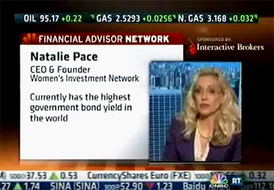 Natalie Wynne Pace is an Advocate for Sustainability Financial Literacy & Women's Empowerment. Natalie is the bestselling author of The Power of 8 Billion: It's Up to Us and is the co-creator of the Earth Gratitude Project. She has been ranked as a No. 1 stock picker, above over 835 A-list pundits, by an independent tracking agency (TipsTraders). Her book The ABCs of Money remained at or near the #1 Investing Basics e-book on Amazon for over 3 years (in its vertical), with over 120,000 downloads and a mean 5-star ranking. The 5th edition of The ABCs of Money and the 2nd edition of Put Your Money Where Your Heart Is were released in 2021. Follow her on Instagram. Natalie Pace's easy as a pie chart nest egg strategies earned gains in the last two recessions and have outperformed the bull markets in between. That is why her Investor Educational Retreats, books and private coaching are enthusiastically recommended by Nobel Prize winning economist Gary S. Becker, TD AMERITRADE chairman Joe Moglia, Kay Koplovitz and many Main Street investors who have transformed their lives using her Thrive Budget and investing strategies. Click to view a video testimonial from Nilo Bolden. Check out Natalie Pace's Apple Podcast. Watch videoconferences and webinars on Youtube. Other Blogs of Interest Air B N Bust? Santa Rally 2023 or Time to Get Defensive? Barbie. Oppenheimer. Strikes. Streaming Wars. Netflix. Monero: A Token of Trust? 13 Lifestyle Choices to Reduce Waste, Pollution & CO2 & Save a Boatload of Dough. China Bans Apple 11-Point Green Checklist for Schools. Artificial Intelligence and Nvidia's Blockbuster Earnings Report Biotech in a Post-Pandemic World Summer Sweepstakes 10 Wealth Secrets of Billionaires and Royals. What Happened to Cannabis? Bank of America has $100 Billion in Bond Losses (on Paper) The USA AAA Credit Rating is on a Negative Watch. Lithium. Essential to EV Life. I'm Just Not Good at Investing. Investors Ask Natalie. Should I Buy an S&P500 Index Fund? Investors Ask Natalie. Bonds Lost More than Stocks in 2022. Tesla's Model Y is the Bestselling Car in the World. 2023 Company of the Year Sell in May and Go Away? Do Cybersecurity Risks Create Investor Opportunities? Writers Strike, While Streaming CEOs Rake In Hundreds of Millions Annually. I Lost $100,000. Investors Ask Natalie. Artificial Intelligence Report. Micron Banned in China. Intel Slashes Dividend. Buffett Loses $23 Billion. Branson's Virgin Orbit Declares Bankruptcy. Insurance Company Risks. Schwab Loses $41 Billion in Cash Deposits. The Debt Ceiling Crisis. What's at Stake? Fiat. Crypto. Gold. BRICS. Real Estate. Alternative Investments. BRICS Currency. Will the Dollar Become Extinct? Empty Office Buildings & Malls. Frozen Housing Market. The Online Global Earth Gratitude Celebration 7 Green Life Hacks The Debt Ceiling. Will the U.S. Stop Paying Bills in June? Fossil Fuels Touch Every Part of Our Lives Are There Any Safe, Green Banks? 8 Fires the Federal Reserve Board Needs to Put Out. 7 Ways to Stash Your Cash Now. Lessons from the Silicon Valley Bank Failure. The 2 Best Solar Stocks Which Countries Offer the Highest Yield for the Lowest Risk? Rebalance By the End of March Solar, EVs, Housing, HSAs -- the Highest-Yield in 2023? Are You Anxious or Depressed over Money? Why We Are Underweighting Banks and the Financial Industry. You Stream all the Channels. Should You Invest, Too? NASDAQ is Still Down -26%. Are Meta & Snap a Buy? 2023 Bond Strategy Emotions are Not Your Friend in Investing Investor IQ Test Investor IQ Test Answers Bonds Lost -26%, Silver Held Strong. 2023 Crystal Ball for Stocks, Bonds, Real Estate, Cannabis, Gold, Silver. Tilray: The Constellation Brands of Cannabis New Year, New Healthier You Tesla's $644 Billion Fall From Mars Silver's Quiet Rally. Save Thousands Annually With Smarter Energy Choices Is Your FDIC-Insured Cash Really Safe? Money Market Funds, FDIC, SIPC: Are Any of Them Safe? My 24-Year-Old is Itching to Buy a Condo. Should I Help Him? The 12-Step Guide to Successful Investing. Gardeners Creating Sanctuary & Solutions in Food Deserts. The Bank Bail-in Plan on Your Dime. Rebalancing Your Nest Egg IQ Test. Answers to the Rebalancing Your Nest Egg IQ Test. Important Disclaimers Please note: Natalie Pace does not act or operate like a broker. She reports on financial news, and is one of the most trusted sources of financial literacy, education and forensic analysis in the world. Natalie Pace educates and informs individual investors to give investors a competitive edge in their personal decision-making. Any publicly traded companies or funds mentioned by Natalie Pace are not intended to be buy or sell recommendations. ALWAYS do your research and consult an experienced, reputable financial professional before buying or selling any security, and consider your long-term goals and strategies. Investors should NOT be all in on any asset class or individual stocks. Your retirement plan should reflect a diversified strategy, which has been designed with the assistance of a financial professional who is familiar with your goals, risk tolerance, tax needs and more. The "trading" portion of your portfolio should be a very small part of your investment strategy, and the amount of money you invest into individual companies should never be greater than your experience, wisdom, knowledge and patience. Information has been obtained from sources believed to be reliable. However, NataliePace.com does not warrant its completeness or accuracy. Opinions constitute our judgment as of the date of this publication and are subject to change without notice. This material is not intended as an offer or solicitation for the purchase or sale of any financial instrument. Securities, financial instruments or strategies mentioned herein may not be suitable for all investors. AirBnBust? Many Airbnb hosts are finding it more difficult to fill their rooms and homes, and have taken to social media to air their grievances. This is happening at a time when short-term rentals are still setting records, with August setting a record of 21.2 million nights booked (source: AirDNA), despite scorching hot temperatures, wildfires and a Florida hurricane. What’s going on? Where are all of these guests staying? Is Airbnb ready to bust? Or is it just the hosts who are in trouble? Vacancies are Up Superhosts have begun complaining of vacancies, of unfair treatment in host/guest squabbles, of squatters and unsavory guests who game the system, and more. Of course, the biggest concern is that their listings are sitting idle, or that they are having to lower their prices for the first time in years. According to AirDNA, the occupancy levels for short-term rentals dipped below 2019 levels in August, at just 60.4% occupancy on average for August 2023, which is -4.2% year over year. For those hosts who are just hoping to earn a little supplemental income, this might be fine. However, there are a lot of people who purchased a 2nd home in 2021, who are expecting the income generated by short-term rentals to cover the price of ownership, at minimum. As you can see in the chart above, summer tends to be the best in terms of occupancy. November and December could dip under 50% occupancy, if the trend line in 2023 shadows the occupancy levels of 2019. Why are occupancy levels dropping while more nights are being booked than ever? There has been a surge in supply (available listings). Supply is Soaring According to Airbnb CEO Brian Chesky in the 2Q 2023 earnings call of August 2, 2023, “In Q2, supply grew 19% year over year.” Time magazine (quoting data from AirDNA) reported that “The number of available short-term rental listings in the U.S. skyrocketed to 1.38 million in September… a 23.2% year-over-year increase.” The glut in supply has two primary causes. 2021 Vacation Home Buying In 2021, with mortgage interest rates at rock-bottom, cash accounts offering nothing to savers, and Work From Anywhere gaining in popularity, many homeowners decided to buy a 2nd home. Real estate brokers talked up all of the extra income homeowners could earn on Airbnb. (Real estate brokers benefit from the commissions on the home purchase.) Our team was getting inquiries left and right about this. Should I buy a home and rent it out? Buying high in real estate is risky, even if you are banking on covering most of your costs with rental income, especially if home prices, rental income or occupancy drop. (We cover this in our Financial Freedom retreats and our Real Estate Master Class. There is also a Real Estate section in The ABCs of Money 5th edition.) 2023 Strained Family Budgets Many Americans have burned through their savings and are looking for other ways to make ends meet. Renting out an extra bedroom, turning the garage into a studio, or even building a low-cost ADU* in the backyard has become popular. This trend is also increasing the supply of available short-term rentals. *Additional Dwelling Unit More Affordable Prices? Airbnb CEO Chesky reported in the 2Q 2023 earnings call that “hosts have started lowering their prices, with more of them offering weekly and monthly discounts.” While this is great news for housing unaffordability (if the trend continues), it could be a disaster for hosts who purchased that 2nd vacation rental in the past few years, who now have to lower their prices to compete. There have been reports of some fed-up hosts leaving the short-term market, and turning to long-term tenants – off the Airbnb platform. Airbnb Revenue So far, Airbnb is showing no signs of a bust. While hosts are suffering from higher vacancies and lower prices/revenue, Airbnb is posting record revenue and profits. The company had $8.4 billion in revenue and $1.89 billion in net profit in 2022. (More hosts in more markets is working for the company.) Airbnb’s second quarter revenue was up 18% year over year, and the company is expecting 14-18% YOY growth in Q3 2023, with revenue of $3.3 to $3.4 billion. 3Q 2023 results should be announced around November 3, 2023. Before you move into an investment, the price-earnings ratio on Airbnb is a lofty 38. Additionally, the travel sector tends to be hit hard when the economy slows down or a recession finally arrives, as do most stocks. A rising tide lifts all ships, while a sinking tide can drown them. Airbnb versus Hotels Airbnb and other short-term rental websites are being blamed for everything from the problems in hospitality commercial real estate to housing unaffordability – not just in the United States, but around the world. Many cities have cracked down on Airbnb listings. Some require hosts to register with the city and pay hotel-like bed taxes. Others, like New York City and Santa Monica, California, have an outright ban on short-term rentals. Many hotels are raising their room rates and enjoying year-over-year revenue growth. However, many still have a debt hangover from the Great Recession, which was exacerbated by the pandemic lockdown and COVID protocol. A lot of beloved hotel brands are carrying a great deal of legacy debt. Wynn, MGM and Hilton are all speculative grade (junk bonds). Marriott, Las Vegas Sands and Hyatt are at the lowest wrong of investment grade (as is Expedia, the owner of VRBO). By comparison, Booking.com (Priceline) has a credit rating of A- (S&P Global) and Airbnb’s debt-equity ratio is .46 (source: Morningstar). If you’d like an updated Travel Stock Report Card (from Oct. 1, 2023), email [email protected] with Travel Stock Report Card in the subject line. Airbnb: Not the Only Game in Town Many different hosting platforms are now very active. A lot of hosts who used to be exclusively on Airbnb are now branching out to other platforms. VRBO has always been a well-known and strong competitor. However, Booking.com has added hosts to its hotel listings. Other popular platforms include TripAdvisor, CraigsList (where a lot of hosts try to get around regulations) and TravelNurses.com. While hotel prices remain higher than the average short-term rental listing, guests have an incentive to keep opting for the house-share platforms. However, will hosts find the shrinking occupancy, increased competition and lower revenue worth the trouble? Sharing platforms like Airbnb have to navigate between pleasing the hosts on their platform, while ensuring a quality experience for their guests, all while having never seen the majority of the properties they offer (unlike hotels!). Airbnb is anticipating that artificial intelligence will aid them with their customer care and dispute resolution going forward. Bottom Line The AirBnBust is happening to hosts more than the company (so far). However, travel and hospitality companies suffer greatly when the economy enters a recession, or when people can’t afford to take a vacation. With personal savings rates at an all-time low and a potential recession on the horizon, it’s a good idea to be ahead of this trend and to make sure that our personal budget and wealth plan are intact. We will be hosting a Real Estate Master Class in Spring 2024. However, if you were one of those homeowners who purchased over the last few years, hoping to monetize on Airbnb, only to discover that you’ve got a lot of vacancies, it might be a good idea to do a risk analysis through our private coaching program or to attend our January New Year New You Financial Freedom Retreat. Click to discover the 15+ things you’ll learn, to read testimonials and for pricing and hours. Email [email protected] with questions. Register for the Jan. 2023 retreat by Halloween and receive the lowest price and a 50-minute private prosperity coaching session (value $400). "Many people, including educated men and women, often get into trouble when they neglect to follow simple and fundamental rules of the type provided [by Natalie]. This is why I recommend them with enthusiasm." Professor Gary S. Becker. Dr. Becker won the 1992 Nobel Prize in economics for his theories on human capital Join us at our Oct. 7-9, 2023 Financial Freedom Retreat. Learn nest egg strategies, how to get hot and diversified, and what's safe in a Debt World. You'll even discover how to save thousands annually with smarter big-ticket choices. Yes, it's a complete money makeover. Email [email protected] to register. Learn the 15+ things you'll master and read testimonials in the flyer (link below) and on the home page at NataliePace.com.  Join us for our Online New Year, New You Financial Freedom Retreat. Jan. 13-15, 2024. Email [email protected] or call 310-430-2397 to learn more. Register by Halloween to receive the best price and a complimentary 50-minute private prosperity coaching session (value $400). Click for testimonials, pricing, hours & details.  Join us for our Restormel Royal Immersive Adventure Retreat. March 8-15, 2024. Email [email protected] to learn more. Register with friends and family to receive the best price. Click for testimonials, pricing, hours & details. There is very limited availability, and you must register early to ensure that you get the exact room you want. This retreat includes an all-access pass to all of our online training for a full year for two!  Natalie Pace at the Ritz Carlton Powerscourt, Ireland. Photo by: Marie Commiskey. Natalie Pace at the Ritz Carlton Powerscourt, Ireland. Photo by: Marie Commiskey. Natalie Wynne Pace is an Advocate for Sustainability Financial Literacy & Women's Empowerment. Natalie is the bestselling author of The Power of 8 Billion: It's Up to Us and is the co-creator of the Earth Gratitude Project. She has been ranked as a No. 1 stock picker, above over 835 A-list pundits, by an independent tracking agency (TipsTraders). Her book The ABCs of Money remained at or near the #1 Investing Basics e-book on Amazon for over 3 years (in its vertical), with over 120,000 downloads and a mean 5-star ranking. The 5th edition of The ABCs of Money and the 2nd edition of Put Your Money Where Your Heart Is were released in 2021. Follow her on Instagram. Natalie Pace's easy as a pie chart nest egg strategies earned gains in the last two recessions and have outperformed the bull markets in between. That is why her Investor Educational Retreats, books and private coaching are enthusiastically recommended by Nobel Prize winning economist Gary S. Becker, TD AMERITRADE chairman Joe Moglia, Kay Koplovitz and many Main Street investors who have transformed their lives using her Thrive Budget and investing strategies. Click to view a video testimonial from Nilo Bolden. Check out Natalie Pace's Apple Podcast. Watch videoconferences and webinars on Youtube. Other Blogs of Interest Santa Rally 2023 or Time to Get Defensive? Barbie. Oppenheimer. Strikes. Streaming Wars. Netflix. Monero: A Token of Trust? 13 Lifestyle Choices to Reduce Waste, Pollution & CO2 & Save a Boatload of Dough. China Bans Apple 11-Point Green Checklist for Schools. Artificial Intelligence and Nvidia's Blockbuster Earnings Report Biotech in a Post-Pandemic World Summer Sweepstakes 10 Wealth Secrets of Billionaires and Royals. What Happened to Cannabis? Bank of America has $100 Billion in Bond Losses (on Paper) The USA AAA Credit Rating is on a Negative Watch. Lithium. Essential to EV Life. I'm Just Not Good at Investing. Investors Ask Natalie. Should I Buy an S&P500 Index Fund? Investors Ask Natalie. Bonds Lost More than Stocks in 2022. Tesla's Model Y is the Bestselling Car in the World. 2023 Company of the Year Sell in May and Go Away? Do Cybersecurity Risks Create Investor Opportunities? Writers Strike, While Streaming CEOs Rake In Hundreds of Millions Annually. I Lost $100,000. Investors Ask Natalie. Artificial Intelligence Report. Micron Banned in China. Intel Slashes Dividend. Buffett Loses $23 Billion. Branson's Virgin Orbit Declares Bankruptcy. Insurance Company Risks. Schwab Loses $41 Billion in Cash Deposits. The Debt Ceiling Crisis. What's at Stake? Fiat. Crypto. Gold. BRICS. Real Estate. Alternative Investments. BRICS Currency. Will the Dollar Become Extinct? Empty Office Buildings & Malls. Frozen Housing Market. The Online Global Earth Gratitude Celebration 7 Green Life Hacks The Debt Ceiling. Will the U.S. Stop Paying Bills in June? Fossil Fuels Touch Every Part of Our Lives Are There Any Safe, Green Banks? 8 Fires the Federal Reserve Board Needs to Put Out. 7 Ways to Stash Your Cash Now. Lessons from the Silicon Valley Bank Failure. The 2 Best Solar Stocks Which Countries Offer the Highest Yield for the Lowest Risk? Rebalance By the End of March Solar, EVs, Housing, HSAs -- the Highest-Yield in 2023? Are You Anxious or Depressed over Money? Why We Are Underweighting Banks and the Financial Industry. You Stream all the Channels. Should You Invest, Too? NASDAQ is Still Down -26%. Are Meta & Snap a Buy? 2023 Bond Strategy Emotions are Not Your Friend in Investing Investor IQ Test Investor IQ Test Answers Bonds Lost -26%, Silver Held Strong. 2023 Crystal Ball for Stocks, Bonds, Real Estate, Cannabis, Gold, Silver. Tilray: The Constellation Brands of Cannabis New Year, New Healthier You Tesla's $644 Billion Fall From Mars Silver's Quiet Rally. Save Thousands Annually With Smarter Energy Choices Is Your FDIC-Insured Cash Really Safe? Money Market Funds, FDIC, SIPC: Are Any of Them Safe? My 24-Year-Old is Itching to Buy a Condo. Should I Help Him? The 12-Step Guide to Successful Investing. Gardeners Creating Sanctuary & Solutions in Food Deserts. The Bank Bail-in Plan on Your Dime. Rebalancing Your Nest Egg IQ Test. Answers to the Rebalancing Your Nest Egg IQ Test. Important Disclaimers Please note: Natalie Pace does not act or operate like a broker. She reports on financial news, and is one of the most trusted sources of financial literacy, education and forensic analysis in the world. Natalie Pace educates and informs individual investors to give investors a competitive edge in their personal decision-making. Any publicly traded companies or funds mentioned by Natalie Pace are not intended to be buy or sell recommendations. ALWAYS do your research and consult an experienced, reputable financial professional before buying or selling any security, and consider your long-term goals and strategies. Investors should NOT be all in on any asset class or individual stocks. Your retirement plan should reflect a diversified strategy, which has been designed with the assistance of a financial professional who is familiar with your goals, risk tolerance, tax needs and more. The "trading" portion of your portfolio should be a very small part of your investment strategy, and the amount of money you invest into individual companies should never be greater than your experience, wisdom, knowledge and patience. Information has been obtained from sources believed to be reliable. However, NataliePace.com does not warrant its completeness or accuracy. Opinions constitute our judgment as of the date of this publication and are subject to change without notice. This material is not intended as an offer or solicitation for the purchase or sale of any financial instrument. Securities, financial instruments or strategies mentioned herein may not be suitable for all investors. |
AuthorNatalie Pace is the co-creator of the Earth Gratitude Project and the author of The Power of 8 Billion: It's Up to Us, The ABCs of Money, The ABCs of Money for College, The Gratitude Game and Put Your Money Where Your Heart Is. She is a repeat guest & speaker on national news shows and stages. She has been ranked the No. 1 stock picker, above over 830 A-list pundits, by an independent tracking agency, and has been saving homes and nest eggs since 1999. Archives
July 2024
Categories |






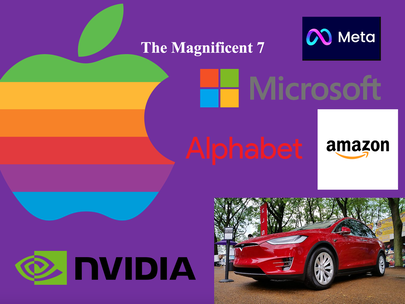
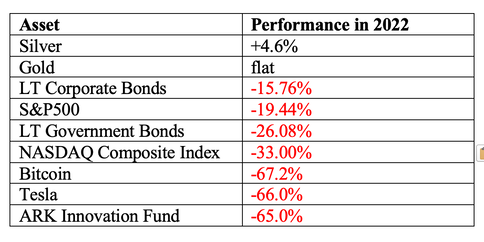
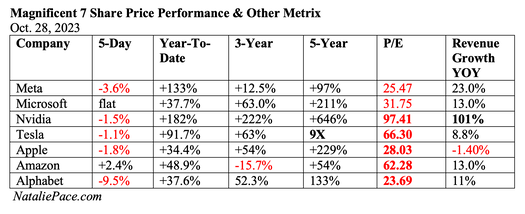
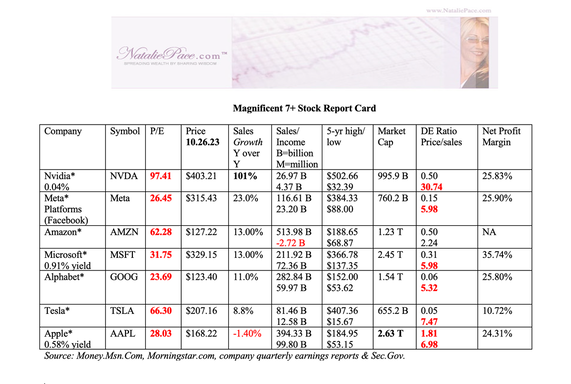

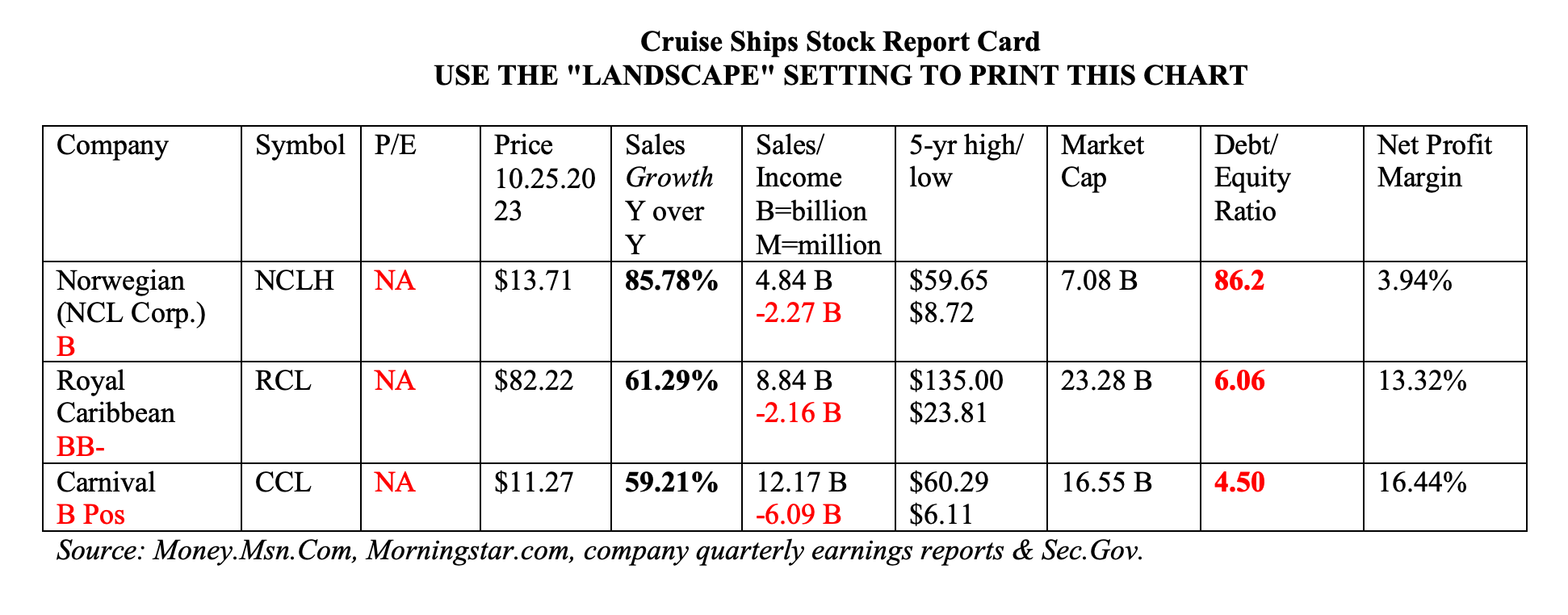
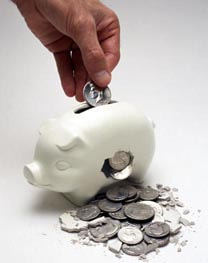
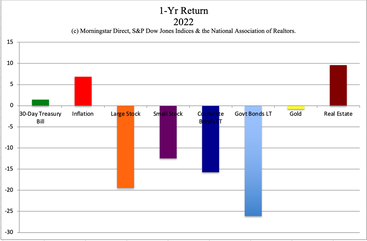
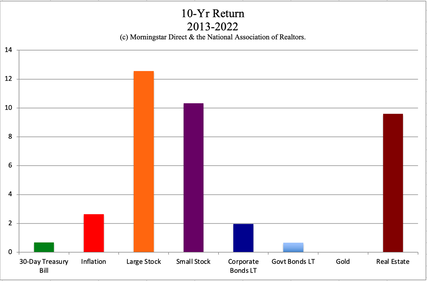
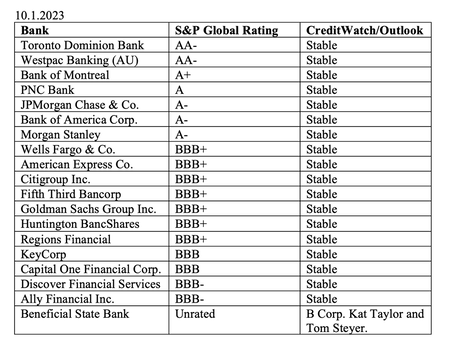
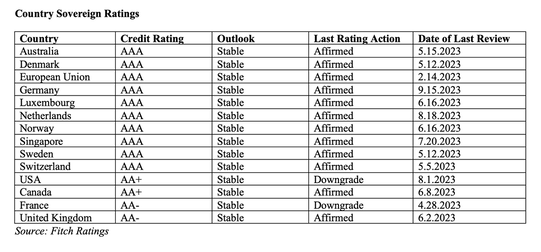
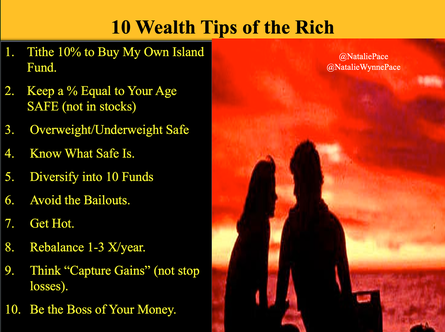
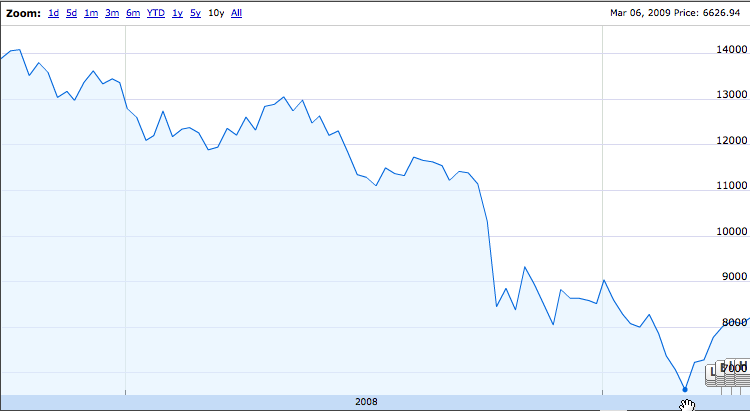
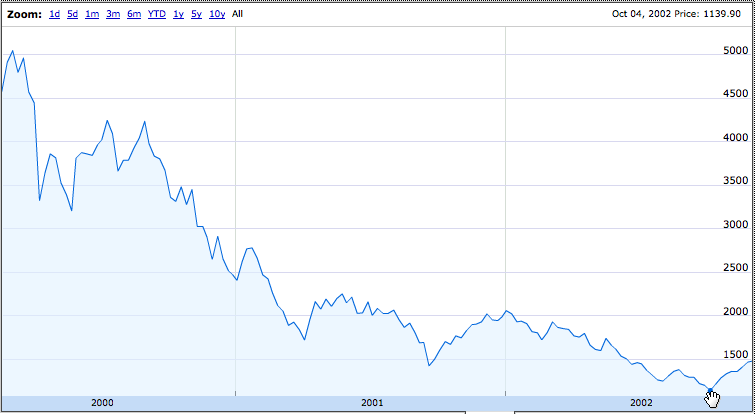
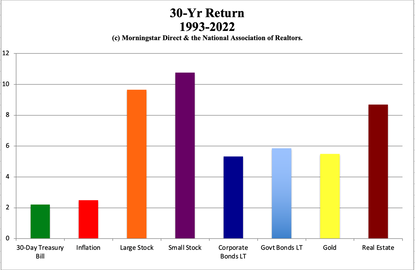
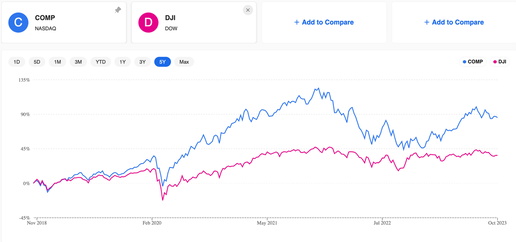
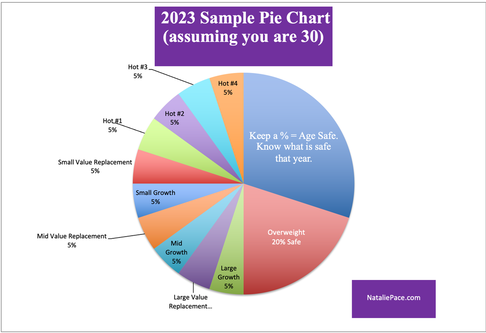
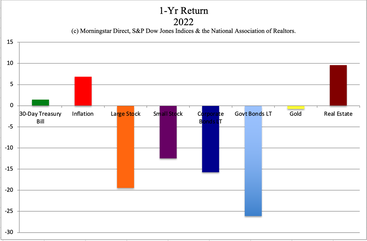
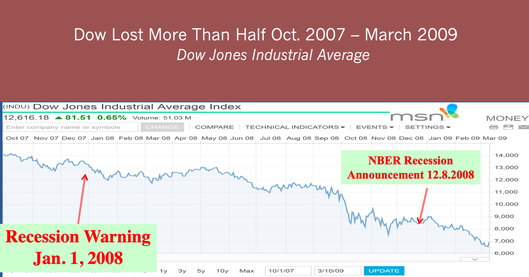

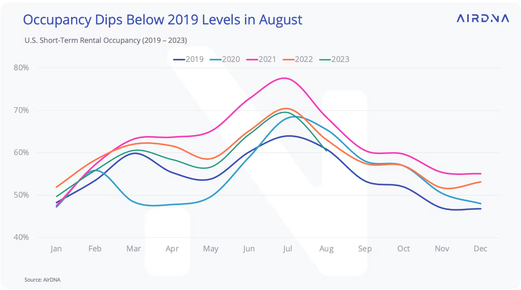
 RSS Feed
RSS Feed